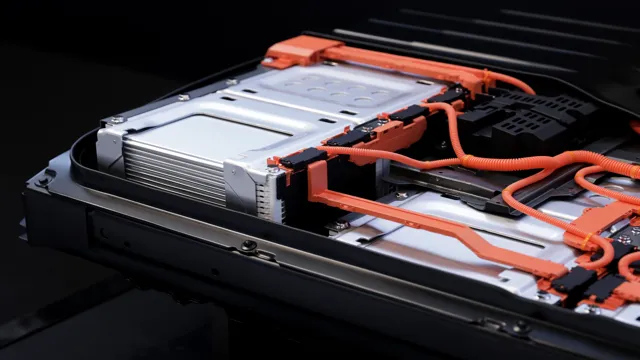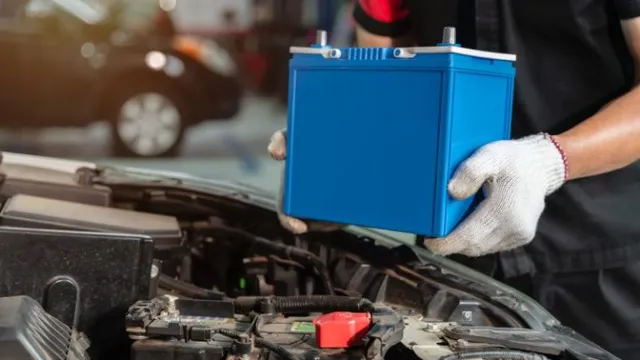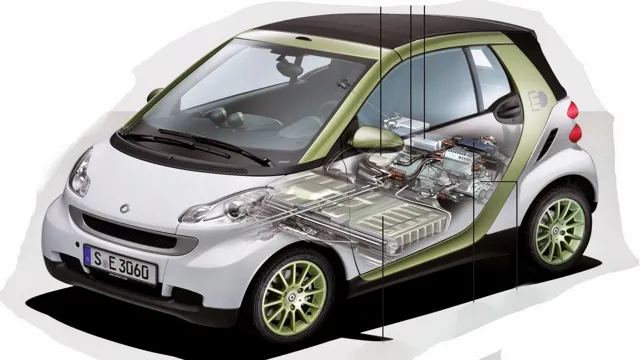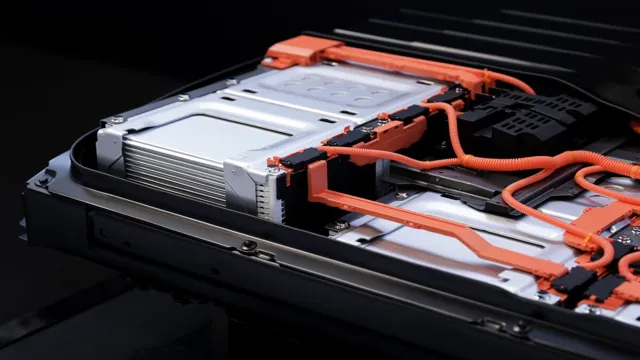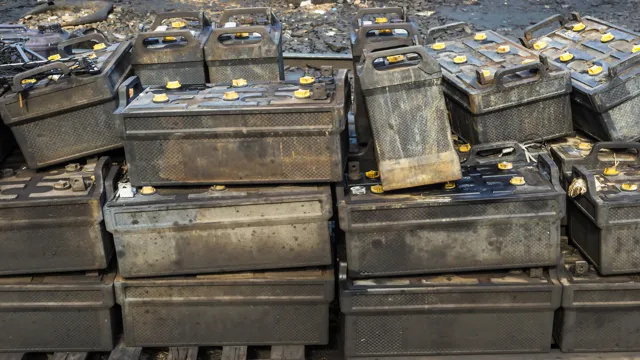Unraveling the Truth: The Environmental Impact of Electric Cars and Battery Technology
Electric cars are all the rage nowadays, and for a good reason: they are environmentally friendly. As our world is continuously changing, so does our approach to transportation. We have become increasingly aware of the detrimental effects of gas and diesel-powered cars on the environment and have started to look for alternative solutions to mitigate the damage.
Electric cars provide a sustainable way to get around while reducing our carbon footprint. But what exactly makes them an eco-friendly choice? Let’s dive deeper into the topic of electric cars and the environment.
Electric Cars are Good for the Environment
Are electric cars good for the environment? Yes, they are. While it is true that electric car batteries contain materials such as lithium and cobalt, which can have negative environmental impacts if not managed carefully, the overall impact of electric cars on the environment is much less than that of conventional gasoline-powered vehicles. Electric cars release far fewer greenhouse gas emissions than gasoline cars, and they also produce fewer air pollutants that can harm both people and the environment.
Plus, as renewable energy sources such as wind and solar become more widely integrated into the power grid, the environmental benefits of electric cars will only continue to grow. So while there may be some concerns about the materials used in electric car batteries, it is clear that these vehicles are a far better option for the environment than traditional gasoline cars.
Reducing Carbon Emissions
Electric cars have risen in popularity over the past few years as a way to reduce carbon emissions and benefit the environment. By using electricity as their main source of power, electric cars produce zero emissions from the tailpipe, which in turn reduces air pollution, greenhouse gases, and helps combat climate change. Additionally, electric cars can be charged using renewable energy sources such as solar or wind power, making them a truly sustainable alternative to traditional gas-powered vehicles.
While some may worry about the cost and accessibility of electric cars, advancements in technology and government incentives have made them more affordable and widespread. Overall, driving an electric car is a simple yet impactful way to reduce your carbon footprint and contribute to a healthier planet.
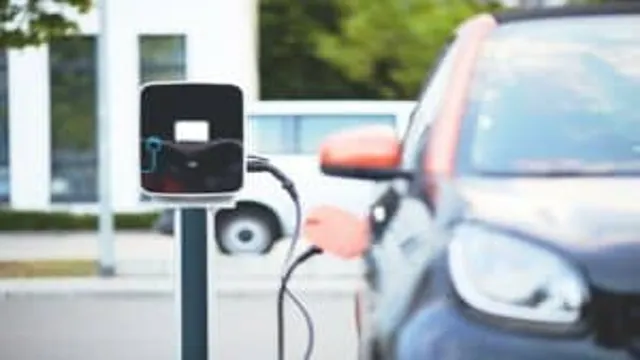
Cleaner Air in Cities
Electric Cars Cars are one of the primary contributors to air pollution in cities globally. However, electric cars are becoming an increasingly popular way to reduce this impact. These cars run on electric batteries instead of gasoline, meaning they emit zero harmful pollutants in their use.
Their use also reduces noise pollution, creating quieter cities. Beyond the positive environmental impact, electric cars actually have numerous benefits for their users. They cost less to operate and maintain than traditional cars in the long term, and many countries offer tax incentives or rebates for their purchase.
Overall, electric cars are an excellent way to reduce the amount of pollution in our cities while saving money and enjoying a quieter ride.
Less Dependency on Fossil Fuels
Electric cars are gaining popularity for their eco-friendliness and reduced dependency on fossil fuels. These vehicles run on electricity, which is a sustainable and renewable energy source. By using electric cars, we can not only reduce our carbon footprint but also support the transition towards a greener future.
Unlike traditional gas-powered cars, electric cars emit zero or fewer emissions, thus contributing to reducing air pollution. Moreover, electric cars can be fueled using various methods, including solar power, which makes them even more environment-friendly. Imagine driving a car powered by the sun! Generally, electric cars are a great option for people who want to reduce their impact on the environment while enjoying the convenience of a vehicle.
They are an excellent alternative for reducing the environmental impact of our day-to-day activities while promoting a sustainable future.
Electric Car Batteries: The Environmental Impact
Many people are asking whether electric cars are really good for the environment or if their batteries are actually bad. Well, the truth lies somewhere in between. Electric cars are more eco-friendly compared to gasoline-powered vehicles because they emit fewer pollutants, resulting in cleaner air.
However, the production and disposal of electric car batteries do have an environmental impact. The mining of rare earth metals and other materials used in battery production can cause soil contamination, water pollution, and deforestation. Additionally, when disposed of improperly, batteries can leak hazardous chemicals into groundwater and soil.
Nevertheless, electric car manufacturers are taking steps to reduce the environmental impact of batteries by developing recycling programs and sourcing materials more sustainably. Overall, electric cars are a better option for the environment than traditional gas-powered vehicles, but the industry still has a responsibility to address the environmental impact of electric car batteries.
Manufacturing and Disposal
Electric car batteries have been touted as a green solution to transportation, but their manufacturing and disposal can have a significant environmental impact. The production of these batteries requires a considerable amount of energy and resources, including metals such as lithium, cobalt, and nickel, which are often mined in environmentally sensitive areas. The mining and refining of these materials can result in habitat destruction, water pollution, and soil contamination.
Additionally, the disposal of these batteries can be challenging as they contain toxic chemicals and heavy metals that could potentially harm the environment. However, as electric car technology advances, the industry is making strides towards more sustainable battery production and recycling. Some car manufacturers are designing their batteries for disassembly and reuse, reducing the need for new materials.
Others are implementing closed-loop recycling systems, which reclaim materials from old batteries to make new ones. While the impact of electric car batteries on the environment cannot be ignored, steps are being taken to minimize their negative effects and make them a greener option for transportation.
Recycling and Reusing Batteries
Electric car batteries, recycling, reusing Electric car batteries are a breakthrough that has revolutionized the automotive industry, providing an eco-friendly alternative to traditional petrol and diesel-fueled vehicles. The lithium-ion batteries that power electric cars have a significant impact on the environment, and not always in a positive way. While they provide a greener and more sustainable mode of transportation, they also require a lot of resources to manufacture and have a limited lifespan, resulting in a large amount of waste.
Recycling and reusing these batteries can mitigate their environmental impact and alleviate the burden on natural resources. By implementing proper disposal and recycling methods, the valuable materials within the batteries can be extracted and repurposed for other applications. The reusability of electric car batteries can also extend their lifespan and reduce the need for new batteries, ultimately reducing the waste produced and conserving natural resources.
As more and more electric cars hit the road, it is essential to prioritize sustainable practices and take responsibility for the batteries’ impact on the environment.
Improvements in Battery Technology
Improvements in battery technology have played a major role in the popularity of electric cars. However, the environmental impact of electric car batteries remains a cause for concern. The production of electric car batteries involves the extraction of raw materials such as lithium, cobalt, and nickel, which can have negative environmental impacts.
Additionally, the disposal of used batteries can lead to further environmental harm. However, efforts are being made to reduce this impact. Some manufacturers are exploring the use of recycled materials in the production of batteries, while others are investing in new technologies to make the battery production process more sustainable.
It is important for consumers to consider the environmental impact of electric car batteries and make informed decisions when choosing a vehicle. While the technology is still evolving, investing in electric vehicles with sustainable battery production methods can help reduce our carbon footprint and protect the planet for future generations.
Conclusion
In conclusion, the question of whether electric cars are good for the environment and if batteries are bad is like asking whether vegetables are good for your health but pesticides are bad. Yes, electric cars reduce emissions and help the environment, but the production and disposal of batteries have their own set of negative consequences. It’s all about finding a balance and focusing on continuous improvement in the design and production of electric cars and batteries.
So let’s charge forward towards a more sustainable future, but with a critical eye on the entire life cycle of these technologies. Ain’t nobody got time for a half-baked solution!”
FAQs
Why are electric cars considered good for the environment?
Electric cars are considered good for the environment because they emit fewer greenhouse gases and air pollutants compared to traditional gasoline cars.
How do electric car batteries impact the environment?
The production of electric car batteries requires mining and processing of materials, which can have negative environmental impacts. Additionally, improper disposal of batteries can lead to toxic pollution.
Are all electric car batteries bad for the environment?
No, not all electric car batteries are bad for the environment. Many newer electric cars are using batteries with less harmful materials and are also being designed to be more easily recycled.
How can we dispose of electric car batteries in an environmentally friendly way?
One way to dispose of electric car batteries in an environmentally friendly way is through recycling. Proper recycling practices can help recover valuable materials from these batteries while also reducing the environmental impact of battery disposal.

